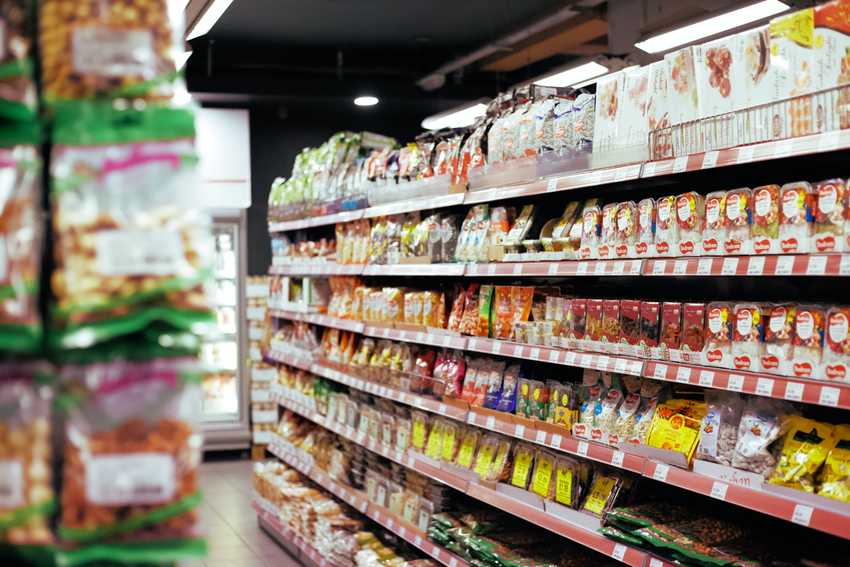Last month Just Kai was privileged to have a guest post In fair&good’s online Journal. Here’s what Heather had to say.
Shopping at the supermarket is such a mundane and ordinary experience, it’s hard to imagine the dark secrets hidden behind some of the products we buy.
At Just Kai, we try to bring those secrets to light while showing you heaps of good options.
You might think the only way to avoid these products is to shop with expensive brands from specialty shops. But we have great news! There are heaps of brands that source their products ethically and many of them are available in every New Zealand supermarket!

In this article, we highlight 3 main industries to be aware of along with our recommendations for great ethical alternatives.
Fish: the biggest concern with ethical produce.
This may come as a surprise to many, but fish is the food that’s most likely to have slave labour in its supply chain.
Men from poor countries like Cambodia are trafficked onto fishing boats, where they are beaten and fed drugs to keep them working dangerously hard.
One such man was Lang Long, who took a good job in the construction industry in Thailand to help his family. When he showed up for work, he was immediately herded onto a fishing boat: he’d been trafficked. He worked for three years without pay, catching the ‘trash fish’ that’s used in pet food and fish oil supplements and the feed fed to farmed prawns and salmon.
Similar abuses happen in tuna and squid. In fact, any fish that’s caught far out to sea is a risk, even if it was caught in New Zealand.
Just Kai’s recommendations:
When it comes to fish, it can be tricky to spot ethical options. There are dolphin-friendly certifications we could point you to, but no human-friendly ones. The only way to know is to ask brands what they’re doing.
That’s where Just Kai comes in: we’ve contacted many companies so you don’t need to!
We have outlined detailed shopping guides, but for processed fish, our easiest recommendation is to buy products from Sealord. Sealord has a strong commitment to human rights and their whole supply chain is audited – right through to fishing vessels thousands of kilometers from land. Sealord also has a budget brand, ‘Captain’s Choice’, that makes fish fingers.
If you have a pet, it can be harder to find ethical options since none of the major companies thoroughly trace their pet food supply chain. However, Purina, whose brands include Friskies and Tux, do a pretty good job.
For fresh, frozen or smoked salmon, Countdown’s own brand has been fed on slave-free fishmeal, as have both Regal and SouthernOcean.
For slave-free prawns, stick to unpeeled wild-caught Australian or Argentinian prawns or buy Kingfisher brand farmed prawns (stocked in New World and PakNSave).
Most shellfish is fine, but if you’re buying scallops, make sure they’re marked as being from New Zealand, Peru, Australia or the United States.
The dark side of the cocoa industry.
Chocolate is a simple treat that many of us love to indulge in. But the story of how our chocolate is sourced is far from a sweet one.
Around 20% of the world’s cocoa is produced by children aged between 12-16 years or younger.
Kids on cocoa plantations are sometimes unknowingly recruited as slaves, although most are working for their parents: cocoa doesn’t sell for much and everyone has to pitch in for the family to survive.
These children work from sun-up to sun-down, hacking weeds, cutting down cocoa pods and carrying 50kg sacks home on their heads. Some children develop hernias from the heavy loads and the majority have scars from machete wounds.
Just Kai’s recommendations:
There are lots of child-labour free options available - many of them costing no more than their unethical counterparts. Look for the following certifications: Fairtrade, WFTO, UTZ or RainforestAlliance.
Samoancocoa is also always slave and child labour free.
Don’t get caught out, though: just because a chocolate brand is expensive or is made in New Zealand, doesn’t mean the cocoa wasn’t produced with child labour.
Just Kai has a lengthy list of all the certified cocoa products we’re aware of in New Zealand.
Sugar hides some bitter secrets, too.
Forced labour is used to cut sugar-cane in many countries, including Brazil, the source of nearly 30% of global sugar exports.
Working conditions for these workers are frequently unsafe and earnings desperately low.
Just Kai’s recommendations:
Some supermarkets stock Trade Aid sugar, which is not only slave-free but has been produced by fairly paid people working in good conditions.
However, if you can’t find that, or if you’re looking for icing sugar or sweetened condensed milk, you can try Countdown’s own brand sugar. It’s got independent slave-free certification through Bonsucro.
If you’re thinking of doing some baking, stock up on their baking chocolate and cocoa, too – they’re also independently certified slave-free!
“As consumers, it’s hard to know what’s ethical and what’s not. The supply chains of our globalised markets are long, often unregulated, and terrible things can happen far away.”
The stories that we’ve uncovered here are hidden behind so much of the food we buy right here in New Zealand. Nearly all of our cocoa and sugar and even much of our fish are imported.